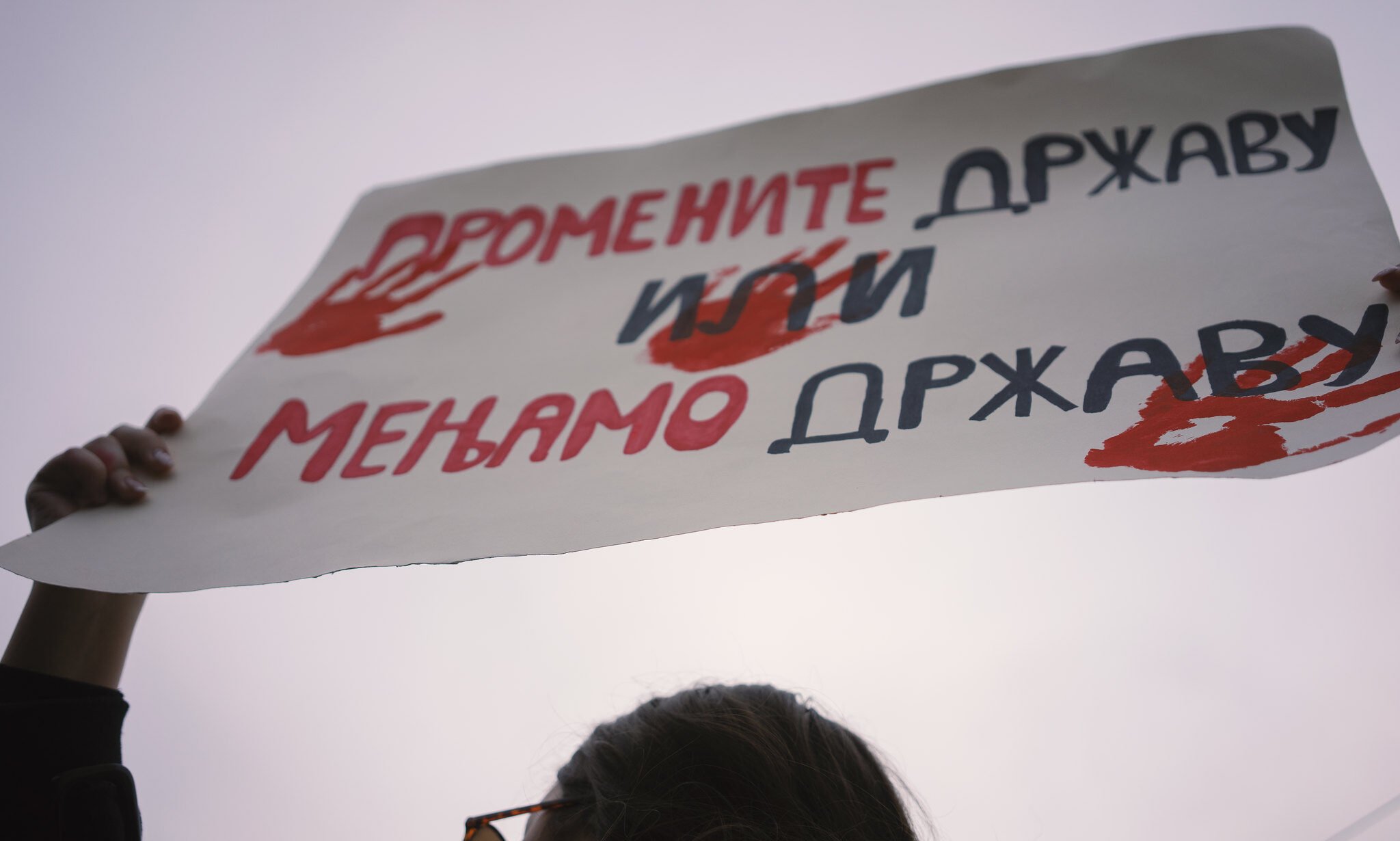- cross-posted to:
- [email protected]
- cross-posted to:
- [email protected]
cross-posted from: https://lemmy.sdf.org/post/29334076
The political landscape in Serbia was upended on January 28, when Prime Minister Miloš Vučević announced his resignation, bringing an abrupt end to his government’s term. The resignation came nearly three months after student-led protests erupted across the country, demanding accountability for a disaster that claimed 15 lives – the collapse of the newly renovated railway station rooftop in Novi Sad.
The station’s modernization was a key component of a high-profile infrastructure project aimed at upgrading the railway link between Belgrade and Budapest, which has itself become a symbol of Serbia’s growing cooperation with China. Completed in the summer of 2024, the $1.5 billion project – funded through a loan agreement between the Serbian government, China’s Exim Bank, and the Russian government under the China-CEEC cooperation framework – was hailed as a milestone in regional connectivity.
It is thus not surprising that the collapse sent shockwaves through Serbian society.
[…]
At the heart of the matter was the way the project was handled from the start. Critics argue that the collapse was not merely an accident but the consequence of a deeply flawed process in which public transparency was sidelined, international agreements were leveraged to bypass national regulations, and political interests were prioritized over safety. What’s more, in order to showcase progress, officials allegedly inaugurated the station before reconstruction work was complete.
The crisis has also provided an unprecedented look into the inner workings of Serbia’s infrastructure deals with China. From high-level government-to-government agreements to contracts between Chinese firms and local subcontractors, the controversy has exposed largely opaque processes. Thanks to relentless pressure from student protesters, key documents were finally made public, offering a rare opportunity for citizens to scrutinize a partnership that has long operated behind closed doors.
[…]
International agreements signed between the Serbian government and China’s Exim Bank in May 2017 and April 2019 revealed that the modernization of two key railway sections was awarded to a Chinese consortium consisting of China Railway International and China Communications Construction Company. These agreements, adopted by the Serbian parliament, were publicly available. What remained inaccessible, however, were the commercial contracts between Serbian authorities – including the Ministry of Construction and Serbian Railways – and the Chinese consortium. One such agreement, covering the section that included the Novi Sad railway station, was signed in July 2018, revealing a critical detail: the selection of Chinese firms for the project was predetermined before the loan agreements were finalized.
[…]
Facilitating Disaster: The Role of Chinese Companies
Chinese companies played a critical role in the modernization project, yet they have largely escaped the level of scrutiny faced by domestic actors. Public outrage over the Novi Sad station collapse was overwhelmingly directed at the Serbian government and its officials. Many saw domestic actors as the primary culprits, accusing them of implementing a project riddled with secrecy and mismanagement. Protesters demanded the publication of all project-related documents, accountability for those responsible, and a transparent investigation – especially after government officials issued conflicting statements, even attempting to downplay the incident by claiming that no work had been done on the station’s rooftop. But as public pressure intensified, nearly 800 documents were released, shedding new light on the project’s many layers.
[…]
For years, Serbian leaders have championed cooperation with China as a pillar of the country’s economic and infrastructure development. The partnership has often been framed as “no-strings-attached” – a model where Chinese investment flows without the pressures of regulatory oversight or strict compliance with international standards. But the tragedy in Novi Sad underscores a dangerous flaw in this approach. When accountability is absent and safeguards are ignored, the consequences can be catastrophic, putting human lives at stake.
To prevent further disasters, Serbia must rethink its approach to foreign-backed projects. Transparency, legality, and accountability must become non-negotiable principles, regardless of the partner involved. This means ensuring that all agreements – whether with China or any other foreign investor – are subject to public scrutiny, adhere to the highest safety and labor standards, and uphold the rule of law. Only through such reforms can Serbia rebuild public trust and prevent similar tragedies in the future.



Yes, I did read the article. I don’t comment on articles without first reading them. My point stands.
Then you may have misunderstood the issue.
I don’t think so. Serbia allowed its train station to fall into dangerous disrepair. Serbia contracted a Chinese company to tart it up, but left the dangerous bit outside its remit on grounds of cultural preservation. The dangerous bit collapsed.
Of course, my information comes additionally from sources other than the article (see above). Your article is from a source generally aligned with US interests, as you of course know. I don’t say that disqualifies it. But this forum is for “Genuine news and discussion about China”. I’m not sure what the “genuine” refers to but I’m sure it allows for some plurality of sources.
Your Wikipedia article says basically the same as the linked article, e.g.,
The article’s point fully stands.